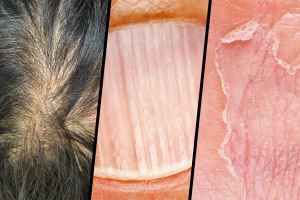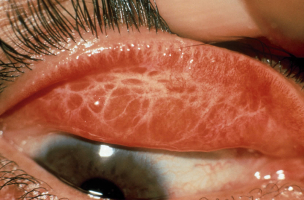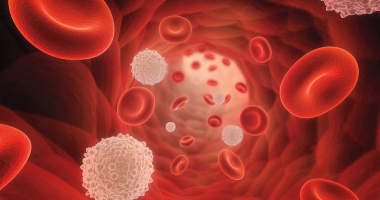Top 5 Signs and Symptoms of Vitamin B6 Deficiency
Vitamin B6 is one of the B complex's eight vitamins. B6 has involved in around 150 enzymatic activities in your body. These aid in the digestion of protein, ... read more...carbohydrates, and fat. The activities of your nervous and immunological systems are very intimately tied to B6. Depending on factors like your age and how deficient you are, a vitamin B6 deficiency can cause problems that range from mild, like low energy, to dangerous, like an increased risk for cardiovascular problems. The following are the signs and symptoms of vitamin B6 deficiency.
-
Vitamin B6 deficiency is one of the causes of seborrheic dermatitis, a red, itchy rash. The rash can occur anywhere on the body, including the scalp, face, neck, and chest. It has a greasy, flaky appearance and can create puffy or white spots on the skin. B6 deficiency can cause skin rashes because it aids in the production of collagen, which is necessary for healthy skin.
In these circumstances, ingesting B6 can aid in the rapid removal of the rash. Some patients with seborrheic dermatitis may require more B6, while others may not. B6-containing face creams may help to alleviate the symptoms of seborrheic dermatitis.

Via: Healthline 
Via: Healthline -
B6 deficiency can impact mood, leading to melancholy, anxiety, irritability, and increased pain sensations. This is due to B6's role in the production of neurotransmitters including serotonin and gamma-aminobutyric acid (GABA). Anxiety, depression, and pain are all controlled by serotonin and GABA. The significance of B6 in the treatment of mood disorders is being investigated under a number of circumstances. For example, taking a B6 vitamin can flower behavioral issues in roughly half of the persons with autism, presumably because it aids in the production of neurotransmitters.
Premenstrual syndrome (PMS) symptoms such as moodiness, irritability, anxiety, and depression can be reduced by taking 50-80mg of B6 daily, according to research. B6 can help with PMS because it aids in the production of serotonin, which improves mood. More research is being done to see if women with PMS are actually deficient in vitamins and minerals.

Via: MultipleSclerosis.net 
Via: Exploring your mind -
Infection, inflammation, and cancer can all be prevented with a healthy immune system. Nutrient deficiencies, such as B6, can cause the immune system to malfunction. A B6 shortage, in particular, can cause a decrease in the synthesis of antibodies, which are essential to combat infections.
A B6 shortage can also reduce the pace at which white blood cells, such as T cells, are produced in the body. These cells help the immune system respond effectively by regulating immunological function. B6 also aids in the production of interleukin-2, a protein that directs the actions of white blood cells. People with autoimmune illnesses (disorders in which the immune system attacks itself) may have a higher level of B6 degradation, necessitating more of the vitamin.

Via: Penn Medicine 
Via: iStock -
A lack of vitamin B6 might make you fatigued and sluggish, due to vitamin B6 aids in the production of hemoglobin - a protein found in red blood cells that aids in the transport of oxygen throughout the body. Anemia occurs when the cells do not receive enough oxygen due to a lack of hemoglobin. The body may get fatigued and weak as a result of this.
There have been occurrences of anemia linked to B6, however, treatment with pyridoxine hydrochloride (HCl) has not proven successful. Supplementing with pyridoxal 5 W-phosphate (PLP), the most active form of B6, was able to cure the anemia. B6 can be purchased as a supplement in either form, however, pyridoxine HCl is more popular and usually costs less than PLP. A B6 deficiency can contribute to fatigue in addition to anemia because it plays a role in the production of the sleep-promoting hormone melatonin.

Via: Best Health Magazine Canada 
Via: Microbiome Research -
Seizures can occur for a variety of reasons, including a B6 deficiency. Because the body cannot produce enough of the calming neurotransmitter GABA without enough B6, the brain can become overstimulated. Muscle spasms, eye-rolling, arm or leg jerking, rapid, uncontrollable tremors, and loss of consciousness are all indications of seizures.
Seizures in babies can be caused by a B6 deficiency. The earliest examples were discovered in newborns fed B6-deficient baby formula in the 1950s. Seizures caused by B6 deficiency have recently been documented in adults. Pregnancy, alcohol addiction, drug interactions, and liver illness are the most common causes of these occurrences. Supplementing with B6 has been demonstrated to be particularly effective in the treatment of seizures associated with it.

Via: Neurology Center For Epilepsy & Seizures 
Via: Healthline


























